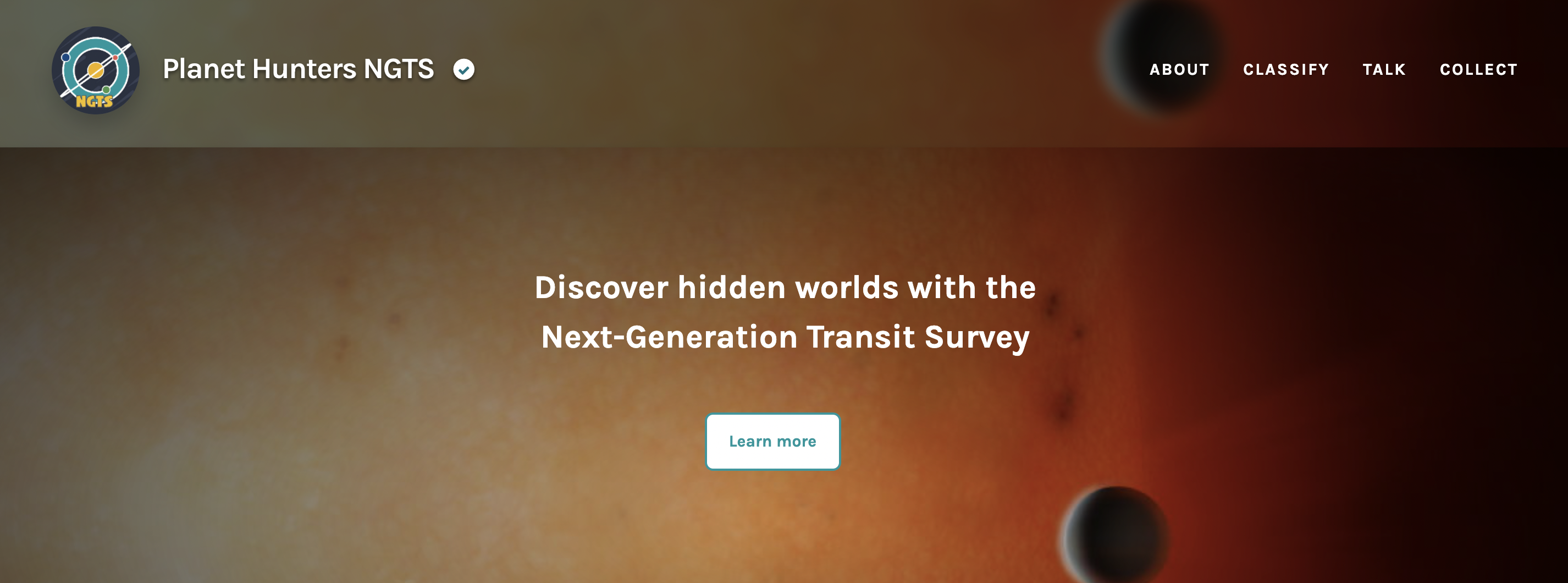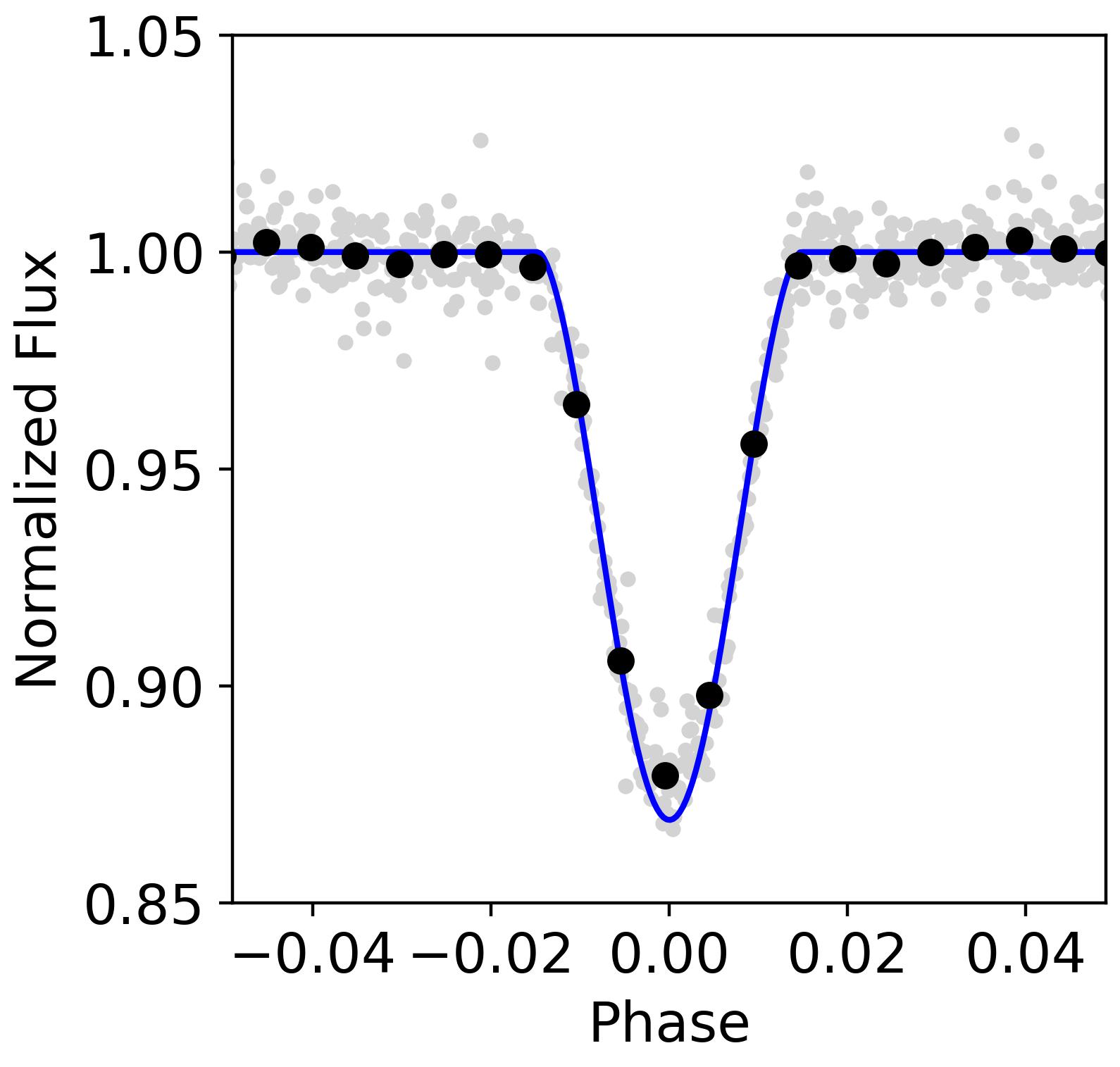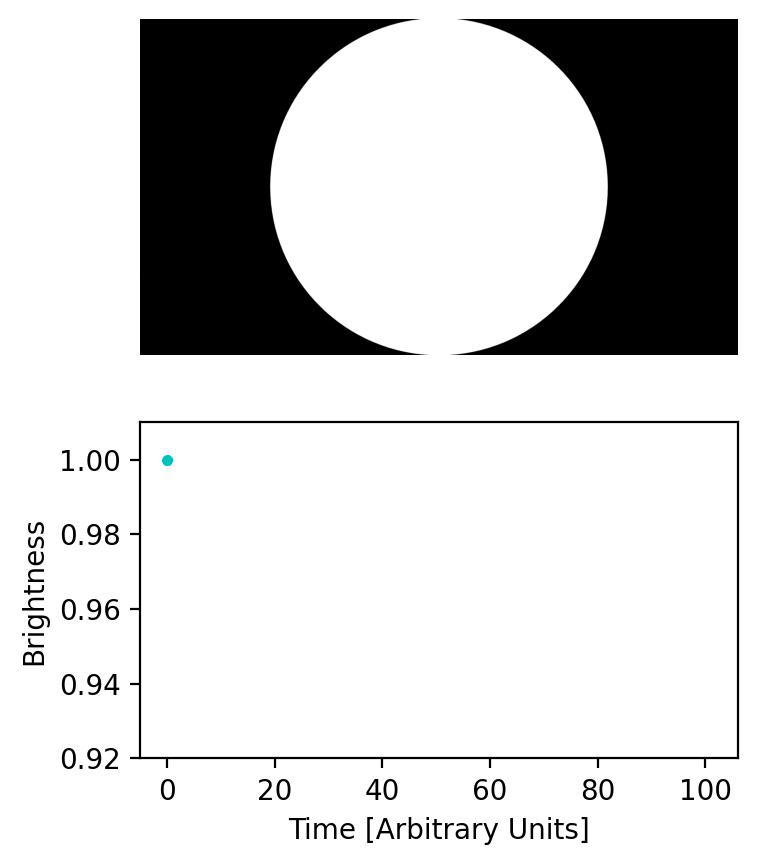About Me
Hello! I'm Sean, a Research Assistant in Astrophysics at Queen's University Belfast. I recently finished my PhD and I lead the Planet Hunters NGTS citizen science project which you can read more about here. I now work on preparing for LSST observations of solar system objects!

Other interests: When I'm not doing science, I'll probably be found riding a bike or watching any sport I can find. I'm an avid
watcher of hockey, baseball, rugby and Formula 1. I'm also big fan of sitcoms (this website was created while re-watching Community for the
nth time). If you want to read a long piece on "What if Wayne Gretzky never scored a goal?" then check out this page, Twitter thread or reddit post.
Research

Planet Hunters NGTS
During my PhD, I led the data analysis of the Planet
Hunters NGTS citizen science project. Exoplanet detection using transit surveys relies on many hours of human vetting to search for
transit-like signals and filter out false positives. The power of citizen science has been proven by projects such as Galaxy Zoo,
Planet Hunters and Planet Hunters TESS. These platforms present images or light curves from telescopes and utilise classifications
from public volunteers to categorise astronomical phenomena, drastically increasing the speed at which researchers can discover
new objects such as transiting exoplanets. My research is focused on exoplanet detection and measuring the detection efficiencies
of citizen scientists using the ngts.planethunters.org Zooniverse project.
Planet Hunters NGTS is the next iteration of the Planet Hunters project, using data from the Next-Generation Transit Survey
to search for exoplanet candidates missed in the initial searches by the science team.
Read the press release from the publication of the first Planet Hunters NGTS paper here!
Read the second Planet Hunters NGTS paper here!
Check out my thesis here!
NGTS Scintillation Monitoring
For my MSc by Research, I investigated the noise properties of scintillation-dominated
light curves from the NGTS telescopes at the Paranal Observatory in Chile. Atmospheric
scintillation is caused by light passing through turbulent regions of the Earth's atmosphere, resulting in changes in intensity of
the light received by a telescope. This is more colloquially known as the "twinkling" we see when observing stars with the naked
eye. This is the dominant noise source when observing bright stars with small-aperture ground-based telescopes, such as at the
NGTS observatory. I compared the photometric noise of NGTS light curves with theoretical noise models, such as the modified Young's
equation, and measured the empirical scintillation coefficient CY. We found agreement between NGTS measurements of
CY and previous independent measurements of the scintillation. We also found correlations with monthly high-altitude
wind speeds: long-exposure scintillation decreased as these wind speeds increased. This is because the turbulence cells are averaged
out during the long-exposure time of the NGTS telescopes. A gif of the monthly changes in wind speed above South America can be
viewed here. This gif is linked in my MSc thesis.
Publications

Here I list publications where I had a significant contribution, for a full list of publications see: ORCID and NASA ADS.
NGTS-EB-8: A double-lined eclipsing M+M binary discovered by citizen scientists
Sean M. O'Brien, Megan E. Schwamb, Christopher A. Watson et al. 2025, AJ, 170, 316, doi:10.3847/1538-3881/ae0e0d
Planet Hunters NGTS: New Planet Candidates from a Citizen Science Search of the Next Generation Transit Survey Public Data
Sean M. O'Brien, Megan E. Schwamb, Samuel Gill et al. 2024, AJ, 167, 238, doi:10.3847/1538-3881/ad32c8
Scintillation-limited photometry with the 20-cm NGTS telescopes at Paranal Observatory
Sean M. O'Brien, Daniel Bayliss, James Osborn et al. 2022, MNRAS, Vol. 509, Issue 4, Pages 6111-6118, doi:10.1093/mnras/stab3399
High precision ground-based CCD photometry from the Next Generation Transit Survey
Daniel Bayliss, Sean M. O'Brien, Edward Bryant et al. 2022, Proc. Spie 12191, X-Ray, Optical, and Infrared Detectors for Astronomy X, 121911A (29 August 2022); doi:10.1117/12.2628966
Outreach
Media:
U105 The Frank Mitchell Show (Radio)
UTV Life (TV)
More about Planet Hunters NGTS
U- or V-shaped dip? How to spot the difference?
Planet Hunters NGTS: Metadata
False Positives: W-shaped transits
Planet Hunters NGTS: NI Science Festival
Planet Hunters NGTS: Potential Planet Candidates
Planet Hunters NGTS: More detail on our first four Planet Candidates
Planet Hunters NGTS at the UK Exoplanet Meeting 2022
Planet Hunters NGTS: A mysterious festive transit
From subject to candidate to planet: Processing all that data
From subject to candidate to planet: Checking in with TESS
Subject to Candidate to Planet: The Task of Zorro
A week in the life of an observer
Published Planet Candidates from Planet Hunters NGTS!
NGTS-EB-8: An eclipsing binary discovered by you! (Part 1)
NGTS-EB-8: An eclipsing binary discovered by you! (Part 2)

Planet Hunters NGTS
Miscellaneous:
Scintillation paper Twitter thread
NISciFest: Planet Hunters NGTS advert
NISciFest: Astro News Bulletin
N.A.M.E.S.: Name A Marvellous Exoplanet System
Irish Astronomical Association Lecture - "Hunting for Exoplanets using Citizen Science"
Contact
Email: sean.obrien(at)qub.ac.uk
Queen's webpages: Departmental/PURE
Address: Astrophysics Research Centre, Queen's University Belfast, Belfast, BT7 1NN




